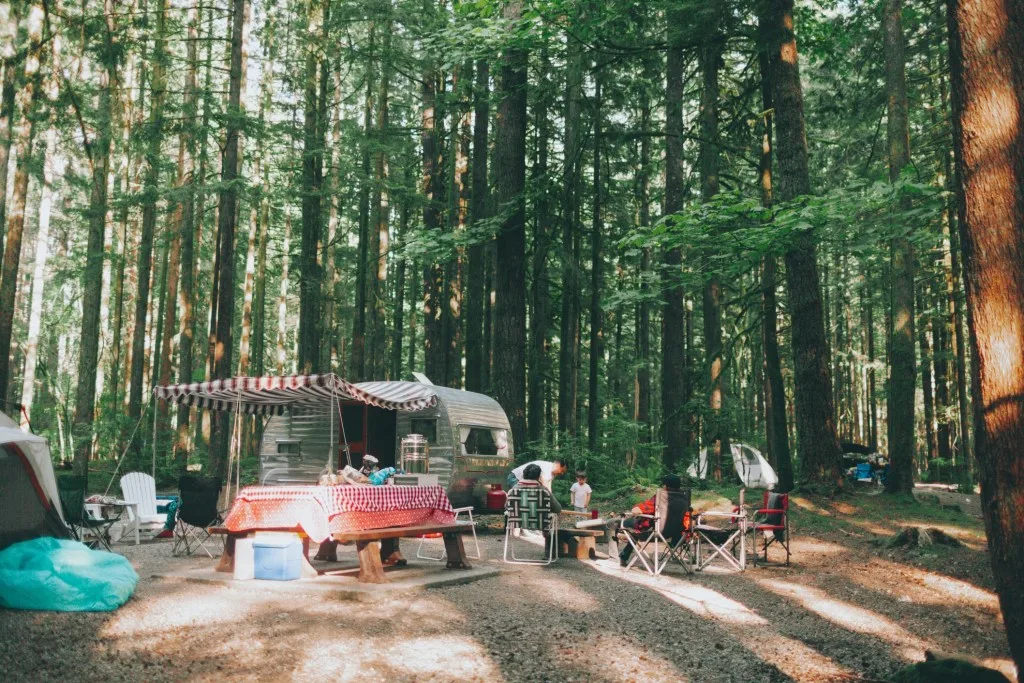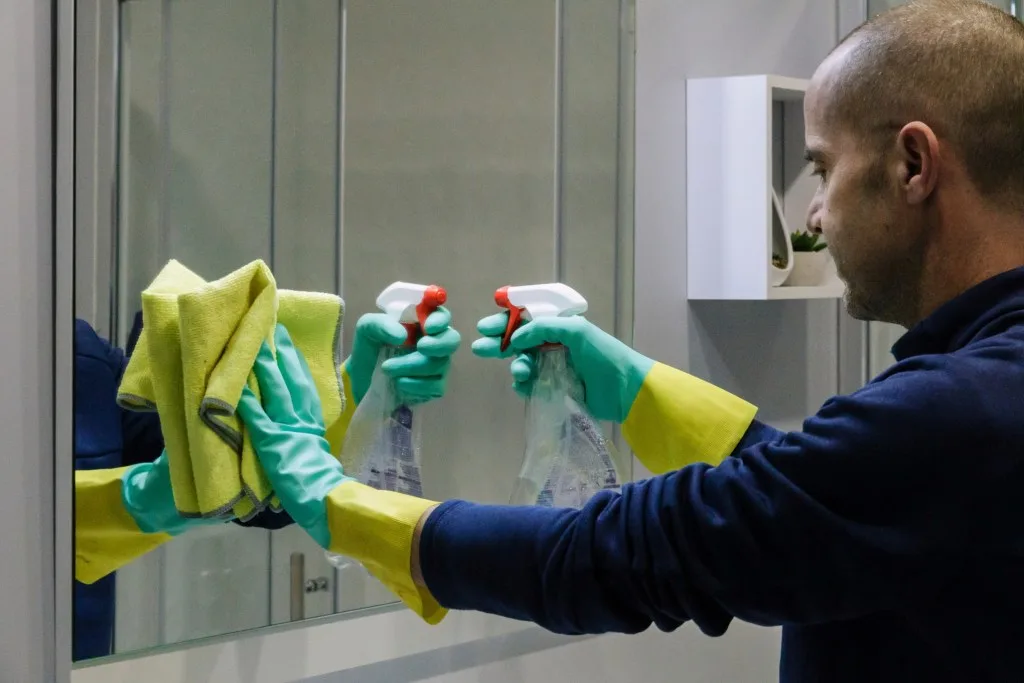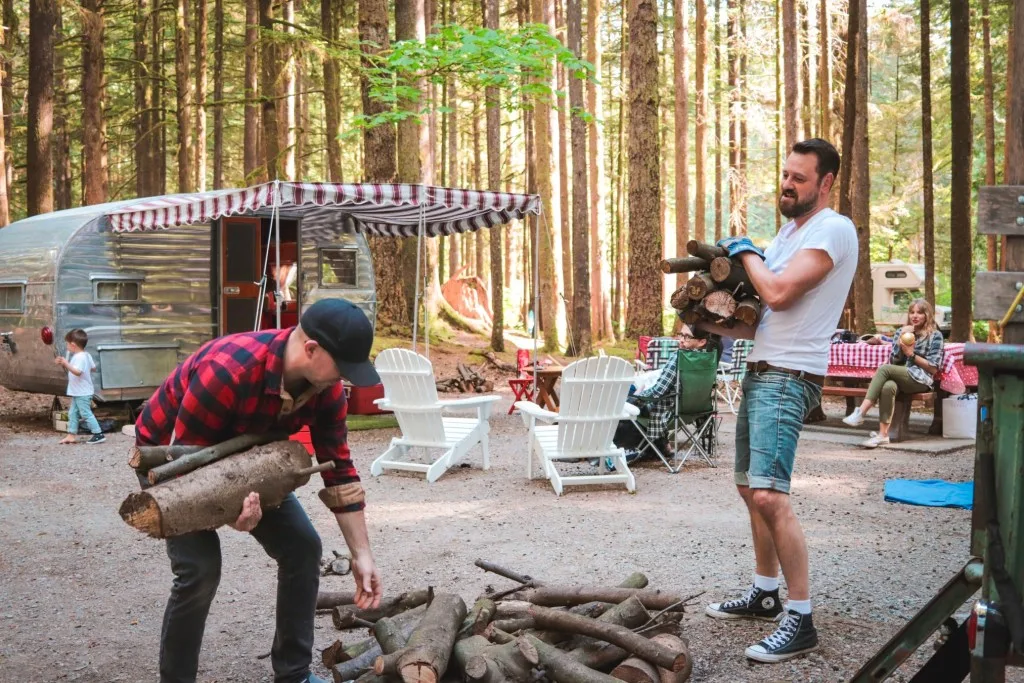RV Park Owners Are Cleaning Bathrooms as Campground Employment Crunch Hits
Campground employment, like many hospitality-based businesses across the country, is facing a labor shortage.
Camping is booming in the United States, and that’s great for business. But those filling the jobs are working longer hours and covering more tasks. Even campground owners are putting the gloves on and cleaning bathrooms or emptying trash bins.
We dug in to find out more about the labor shortage and how it’s impacting campgrounds.
Let’s take a look!

How Is the 2021 Labor Shortage Affecting Campgrounds?
More than 48.2 million households camped at least once in 2020, with 10.1 million of those being first-timers, according to the 2021 North American Camping Report. As we continue to emerge from COVID-19 restrictions, campers intend to increase their trips.
Campgrounds across the country are already feeling this surge. Yellowstone National Park and Grand Teton National Park have seen a record number of May visits in 2021. Grand Teton saw an increase in May camping of 93% over pre-pandemic levels in 2019.
Meanwhile, many jobs at these parks are going unfilled.
There are a few reasons for this. Some people who previously worked these jobs are still feeling the effects of the pandemic. Some people are reassessing what they want from life, while others face child care challenges as some daycares remain closed or schools are still in virtual mode.
Many jobs in the hospitality and service industries are lower-paying. With federally funded increased unemployment benefits, some workers can’t justify working when they make more money from the increased unemployment benefits.
As a result, some campgrounds are reducing camping spots, closing outright, or selling the business. Most, however, are simply struggling to find ways to keep their heads above water as campers come roaring back.

How Are Campground Owners Coping with Less Staffing?
There are only so many ways that campground owners can make up for a shortfall in staffing. Most are trying hard to fill the gap by paying higher wages or offering benefits and bonuses that they might not have in the past.
Keep in mind: Many workamping jobs only trad a free campsite for hours worked. No monetary compensation is standard for lots of workampers.
If owners are unable to hire more workers, they must do more with less. Many are asking their workers to do a wider variety of tasks. They’re also asking employees to work longer hours and more days.
Other owners are taking on some of the work themselves. From trimming trees to checking in guests to emptying trash receptacles, many owners have to get their hands dirtier than ever before.
What Does the Future Look Like for Campground Employment?
Weirdly, the pandemic was good for campgrounds, as it naturally enticed many people who had never camped before to get out and explore the great outdoors. This frequently included a stay at a campground. The pandemic helped increase RV ownership. It also renewed the interest of longtime campers to get out more frequently.
As the country opens back up, some of that interest may fade. But there are still numerous people new to camping who will continue to camp.
It remains to be seen if campground owners will find a way to manage the surge.
Will There Be an End to the Campground Employment Crisis?
It’s difficult to tell if the end to the employment crisis will come soon enough to provide relief for the 2021 season, but there is an end in sight. The hospitality industry is doing its best to increase wages, offer bonuses, and provide flexible working conditions. This should entice a few more employees into open positions this year but might also help stave off future staffing issues.
In addition, the federally-funded increase in unemployment benefits will come to an end. Unless Congress renews it, the current benefits will end on Sept. 6. Many states, most citing worker shortages, have already announced earlier end dates to the increased benefits. Some are even offering state-funded bonuses for people to return to work.
Those of us who enjoy camping can certainly do our part simply by being good guests at campgrounds. Remember to plan ahead, dispose of waste properly, minimize campfire impacts, and consider others. That said, don’t expect the employment dearth to continue perpetually.

Businesses have constantly adapted, and campground owners are no exception. From moving to online reservation systems to improving the check-in process to offering better employment options, things should get better over time. Have you noticed a lack of staff at any campgrounds you’ve visited recently?
We’ll Help You Find the Best Free Camping in the USA
You should give it a try!
As a matter of fact, these free campsites are yours to enjoy. Every time you pay federal taxes, you’re contributing to these lands.
Become a FREE CAMPING INSIDER and join the 100,000 campers who love to score the best site!
We’ll send you the 50 Best Free Campsites in the USA (one per state). Access the list by submitting your email below: